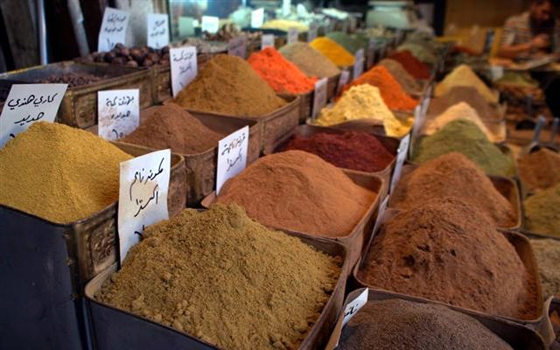Saudi Arabia – the third largest importer of spices in the world after the US and Spain, according FAO 2010 data – is ranked as one of the fast growing markets for food products in the Gulf region.
The Kingdom for many years tends to be more of a spices importer although some products are grown locally.
Major exporting countries of spices to the Kingdom are India, Pakistan, Indonesia, China, and Vietnam, among others.
The Saudi spice market is so huge that it is approximately worth SR1 billion ($266 million), Mahfooz Jawed, Business Development Manager of Shan Foods LLC, told the Saudi Gazette.
According to market size, the business players in the spice business are very less in the Kingdom, he said, if compared with neighboring countries like UAE, Bahrain, Kuwait, etc.
“There are only 3-4 brands available in the modern trade at a time, however the other GCC countries have more than 15 brands on their shelves,” he noted.
Against this backdrop, Shan Foods is expanding its production facility in Saudi Arabia with its new state-of-the-art plant in Makkah which will be completed in four months. At present, the new plant is partly operational, Mahfooz noted.
He said the new plant, when fully operational, will have a production capacity of one ton of mixed spices per hour. And to make its presence in the market more visible than ever, Shan Foods will be celebrating today (Monday) the “Shan Spices Pre-Ramadan launch 2014” at Marriott Hotel Jeddah.
Saudi Arabia is one the biggest food market for imported food in the Middle East. “Considering the size of the market, Shan Food has set up a very up-to- date milling technology called Cryogenic milling. In this milling process, the products are frozen to minus -30 Celsius and then grinded. This helps to retain the flavor, aroma and test of the product at a greater level,” he explained.
Mahfooz further said the items “we produced here have very long list. Some of them are curry powder, chili powder, turmeric powder, coriander powder, black pepper powder, cumin powder, etc.”
The whole items like chili, coriander turmeric and cumin, etc. are purchased locally or imported.
Twenty percent of the production is from Shan’s Makkah Mukarramah plant. The share will be increased gradually in the coming years to 80 percent, he added.
Asked about Shan’s percentage share of the entire Saudi spices market, Jawed said “as our internal policy, we are bound to not to disclose our market share now.” However, he pointed out that “Shan Recipe Mixes (Blended Spices) are the world leader in its category. For this, Shan has won ITQI – ‘International Taste and Quality Award’ – for the last five consecutive years held in Belgium annually.”
Shan was founded in 1981, when the dream of one man became a reality. A visionary entrepreneur, an avowed humanist and a committed philanthropist, Sikander Sultan, CEO of Shan Foods, helped pave the way to success by pioneering in the spice business.
In terms of employment generation for young Saudis, Mahfooz said Shan as a company is in dark green. “We are compliant with the Saudi labor law.”
Moreover, Shan is a global food brand with presence in 65 countries and manufacturing facilities in Pakistan, Saudi Arabia, UAE, UK & USA.
“Our curry powder produced here is with enhanced flavor. And we have launched the new packaging design of our all recipe spices. Actually it’s a start of strategic relationship with all stakeholders,” he added.
Asked about the presence in the market of certain spices that are inferior in quality, Mahfooz aptly said “usage of packed branded spices is the only solution to this problem …where the responsibility of the brand owner is defined. They submit their sample to SFDA to register their products with the details of ingredients used.”
“However local mills not registered in SFDA may use low-grade items to sell at cheaper price. In my opinion this cannot be controlled,” he lamented.
SG
15 June

























































